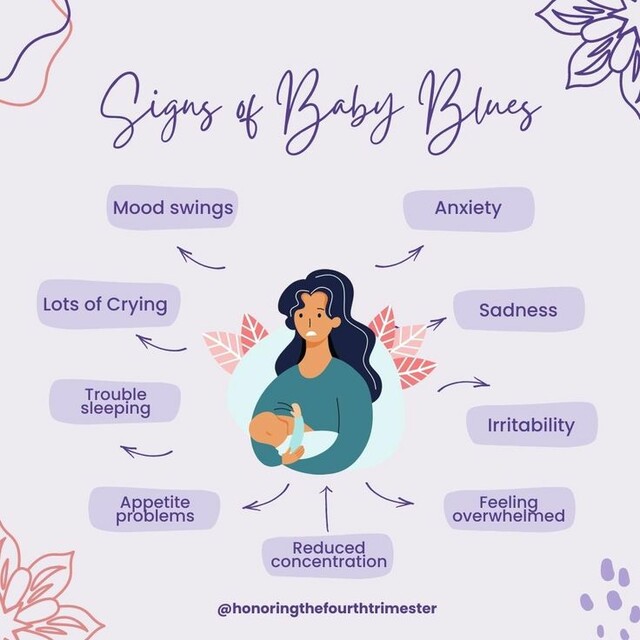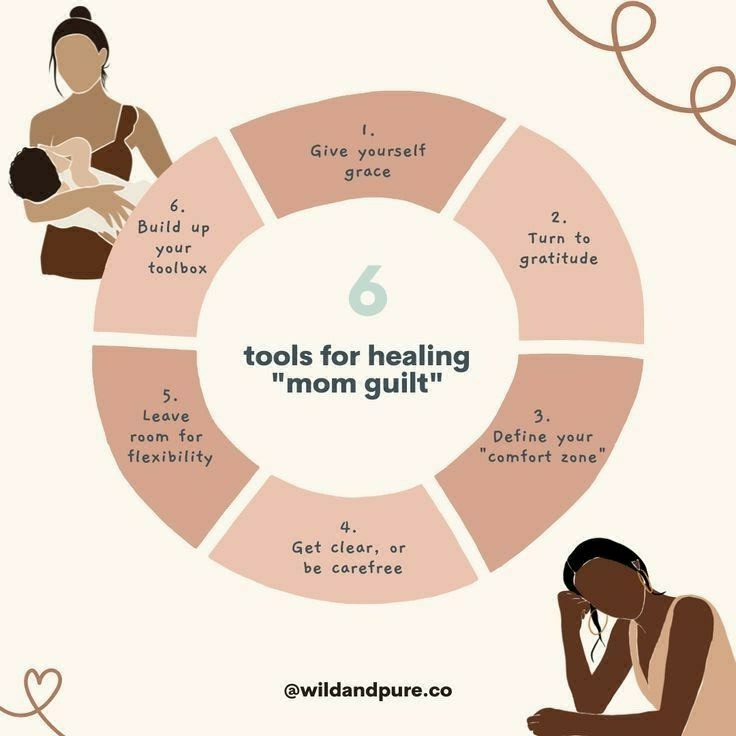3 Examples of ‘Mom Guilt’ & Our Supports for Postpartum

Parenthood is a beautiful and unique journey filled with immeasurable joy and love. However, that doesn’t mean that everything is easy, and reality certainly can feel messy and overwhelming.
As a new parent, you might feel like you have to ‘get it all right.’ Whether it’s bonding, feeding, schedules, or bedtime, the pressure to do it ‘properly’ may overwhelm you to the point where nothing ever feels ‘good enough.’ You may experience feelings of sadness, anxiety, irritability or low mood. It's normal for new parents to feel this way. Sometimes, those feelings can be more intense or persistent, and may be a sign of postpartum depression (PPD).
In this blog post, we’ll explore three common areas where you may experience ‘mom guilt’ and share how our postpartum supports can help.
1. Not feeling an instant bond with your baby
One of the lesser-known struggles that new parents face is the expectation to feel an immediate bond with their baby. There are many reasons why new parents may not feel this right away, such as:
- Birthing trauma or having a difficult labour
- Overwhelm about baby’s survival needs
- Exhaustion from sleep deprivation or having less time with self-care
Contrary to popular belief, feeling bonded to your baby may not happen instantly after birth. Rather, like all relationships, it needs to be nurtured. Not being realistic about these expectations can lead you to feel guilt or worry, and can lead to feelings of excessive shame and wanting to self-isolate.
What might help:
- Acknowledge that bonding takes time. Not feeling it right away does not mean you are a bad parent.
- Increase skin-to-skin contact. Holding your baby close can help release oxytocin, the love and bonding hormone.
- Talk about it. Your experience is valid. Opening up about it to your partner, a friend, or a therapist can help reduce shame and normalize the experience.
2. Struggling with baby’s sleep
One of the biggest challenges that new parents face is a lack of sleep. More than just feeling tired, chronic sleep deprivation is a major risk factor for postpartum depression and anxiety. When babies struggle to sleep, it can leave parents frustrated and guilty, especially if sleep training advice doesn’t work. Some struggles could include:
- Feeling confused about sleep advice such as “co-sleeping is bad/good,” or “sleep training is necessary/unnecessary.”
- The feeling of anxiety or guilt from letting the baby cry when trying to sleep train.
- Feeling like a failure if “nothing works.” Parents might blame themselves if babies don’t sleep well.
What might help:
- Let go of the perfect sleep plan. Every baby is different, and flexibility is key when it comes to baby sleep.
- Reframe your thinking. Just like walking or talking, sleep is something babies learn over time. It’s not about doing it “right” or “wrong.”
- Your baby feels loved, even when they cry. It could be heartbreaking to hear your baby cry, but remember that crying is how babies communicate - it’s not that they’re unloved.
- Having an unrealistic expectation of motherhood
Society sometimes paints an idealized version of motherhood - with smiling moms and peaceful babies in beautiful and clean homes. In reality, motherhood is emotionally intense and physically exhausting. It can also be a lonely experience, especially if you feel like you must live up to a certain ideal. Some ways this may come up are:
- Missing your old life even though you love your baby. You may feel guilty or unsafe admitting this.
- Needing help but being afraid to ask for it. In many cultures, new moms are supported by family and friends. Today, many moms feel isolated and might be afraid of not being “good enough.”
What might help:
- Confiding in someone you trust - your partner, friend, therapist, or support group.
- You don’t have to do it all. If the dishes are in the sink for another day, it’s okay.
- Seek support early. Don’t wait to reach out to healthcare, therapy, or peers if you are constantly feeling down and isolated.
Support for Postpartum Depression & Anxiety
The Family Centre’s Postpartum Therapy Group was designed to be a safe & confidential environment for new mothers and birthing parents to find community, share, and receive support from a mental health therapist. Any new caregiver with children aged 3 or younger is welcome to join.
In this FREE therapy group, your struggles are seen and heard in a safe, compassionate, and judgment-free space. The style of this group is similar to an education/classroom setting combined with a support group setting. You are the expert in this class and your experience matters. Come to sit and listen or share and discuss—there is no pressure, and participation is completely up to you.
With a maximum group size of 8 participants, anything you choose to share in this small therapy group will be kept confidential.
This is a time to put yourself first and focus on your needs. Whether you are experiencing a few mild symptoms, or suspect you might have a more severe form of postpartum depression or anxiety, the therapy group can be helpful. You’re not alone in your journey, and feeling better is within reach.
Visit the Postpartum Therapy Group page for more information. If you’re still not sure if this group is the right fit for you, fill out the form on our page and a therapist will contact you and answer any questions you may have.
We also offer a Partner Postpartum Therapy Group, designed for partners or close family members supporting someone through pregnancy and postpartum. Join this virtual-only group to learn more about the physical, emotional, and psychological changes your loved one (and you!) may experience, as well as how to provide effective emotional and practical support.

